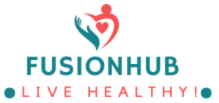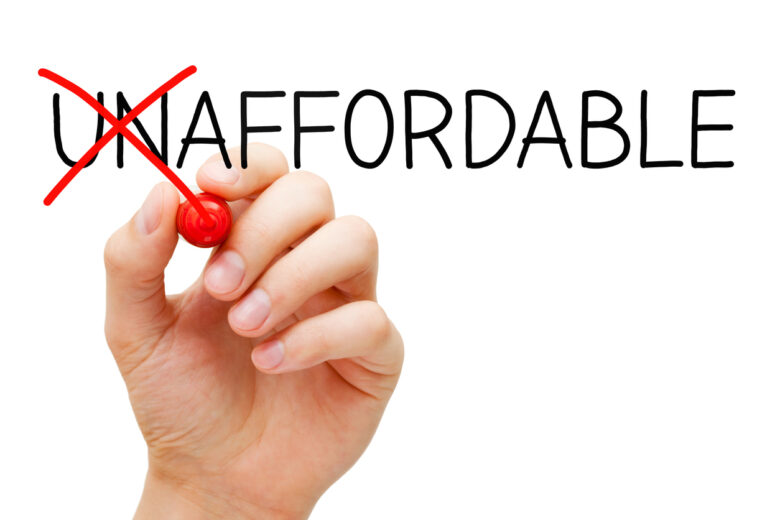Finding affordable health insurance that meets your requirements can be difficult. It is important to find a health insurance plan that offers adequate coverage and affordability, especially with the cost of medical care on the rise. Most people find it difficult to understand the complicated world of coverage, deductibles, and premiums. They often end up with policies that don’t meet their healthcare or financial needs. By understanding the basics and exploring your options, you can get the best deal on health insurance.
There are many ways to get affordable health insurance that still provides coverage, whether you’re self employed, work for a company who doesn’t provide insurance or just looking for a better price. This guide will show you how to find the best insurance for the lowest price, so that you and your loved ones are protected without having to break the bank.
Understanding Health Insurance Basics:
It’s important to know how health insurance works before you can find ways to get affordable insurance. A health insurance contract is between you and the insurance company. It covers medical costs in exchange for regular premium payments. You may have to pay for a deductible as well, which is a pre-payment amount that you are responsible for before your insurance company begins paying. Copayments and coinsurance are other costs, such as out-of-pocket expenses that you share with your insurer. Plans such as Health Maintenance Organizations (HMO), Preferred Provider Organizations (PPO), and High Deductible Health Plans offer different levels of flexibility and cost. Understanding these terms and their impact on your costs can help you make an informed decision when looking for affordable health insurance.
Employer-Sponsored Health Insurance:
Your employer is one of the best places to find affordable health insurance. Most companies provide health insurance to their employees and often cover a portion or all of the premiums. Since the employer negotiates lower group rates, most employer-sponsored plans offer comprehensive coverage for a cheaper price than individual plans. It’s worthwhile to compare the plans offered by your employer with those of other companies if you have health insurance. Some employers offer Health Savings Accounts or Flexible Spending Accounts, which let you set aside money before taxes for medical expenses. This reduces overall costs. Employer-sponsored insurance can be more convenient and affordable than buying a plan yourself, even if it’s not perfect.
Consider Government-Sponsored Health Insurance Programs:
Government programs are an affordable option for those without access to employer-sponsored health insurance. Medicaid and Children’s Health Insurance Programs (CHIP) provide low-cost and free health insurance for eligible individuals and their families based on their income. Medicare is an option for those 65 years and older or with certain disabilities. Health insurance is now more affordable, thanks to the Affordable Care Act. Individuals can apply for subsidies based upon their income level and compare plans. These subsidies can reduce premiums and make health insurance more affordable. By understanding the eligibility requirements and applying for assistance, you can find affordable coverage.
Shopping for Health Insurance in the Marketplace:
Health insurance marketplaces, or exchanges, are a great resource for those looking for affordable health coverage. The marketplace, which was created under the ACA (Affordable Care Act), allows you to compare health insurance plans based upon coverage, price, and provider network. Tax credits and subsidies can lower monthly premiums for many people, allowing them to afford coverage. It’s important to take into account factors like the monthly premium, deductibles, copayments, and network of hospitals and doctors when shopping for insurance.
It may seem that a plan offering a lower monthly premium is the best choice, but you must balance the cost with the coverage level. Open enrollment is the ideal time to enroll in a marketplace plan. However, special enrollment periods may be available if you experience a qualifying life event such as relocating or getting married.
Short-Term Health Insurance Plans:
For those in need of temporary health coverage, short-term insurance plans are a good option. These plans offer lower premiums compared to traditional health insurance, but they also have limitations, such as higher deductibles or fewer benefits. These plans are intended to cover unexpected medical costs rather than regular care. They do not cover pre-existing medical conditions, but they are useful for those who are transitioning from one job to another, for recent graduates, or for those who wait for their employer’s coverage to start. It’s important to understand the fine print of a short-term health plan and what it covers. They may not provide the same comprehensive coverage as other options.
How to Choose a High Deductible Health Plan:
Combining a high-deductible health plan with a Health Savings Account can help you save money while still maintaining your coverage. HDHPs offer lower monthly premiums but have higher deductibles. This means you will pay more before your insurance covers expenses. By combining an HDHP and an HSA, you can save pre-tax dollars for medical expenses. This will reduce your overall costs. Money in an HSA can be invested and rolled over every year, which allows you to save money for future medical expenses. This is a great option for individuals who are healthy and don’t need frequent medical attention. They can save money on insurance while building up a financial cushion to cover future healthcare costs.
Using Discounts and Negotiating Costs:
Medical expenses are high even with insurance. However, there are ways to lower them. To help you manage your expenses, many healthcare providers offer discounts or payment plans for cash payments. You can also save money by negotiating medical bills or shopping around for services. Generic drugs can be cheaper than brand-name medications, and many pharmacies have discount programs for prescription medications. Many organizations offer free or low-cost healthcare services. These include community health clinics, nonprofit medical providers, and nonprofit medical centers. These options can help keep your medical costs in check, making insurance more affordable over time.
Conclusion:
Finding affordable health care insurance does not have to be a difficult or stressful process. You can find coverage that suits your budget by understanding the various types of plans and exploring government and employer-sponsored options. You can choose from a variety of plans, including those offered by employers, marketplace plans, and high-deductible plans with HSAs. The key is to find a balance between the cost and the coverage that you require. You can also save money by negotiating the cost of medical care and taking advantage of available discounts. You can find affordable insurance for your health that will protect you without straining the budget.
FAQs:
1. What is the most affordable type of health insurance?
The most affordable options include employer-sponsored plans, government-sponsored programs such as Medicaid and ACA Marketplace plans with subsidies.
2. Can I still get health insurance with a low income?
Medicaid and ACA Marketplace subsidies are available to low-income families and individuals. CHIP provides coverage to children from low-income families.
3. What is the difference between a PPO and an HMO?
A PPO allows you to choose your healthcare provider without referrals. An HMO, on the other hand, requires that you use a specific network of doctors.
4. Do short-term medical insurance plans make sense?
These plans provide temporary coverage, but they may also have restrictions, such as exclusions or high deductibles. These plans are ideal for people who need coverage for only a short time.
5. How can I lower my health insurance cost?
Reduce costs by selecting a plan with a high deductible and an HSA. You can also lower your costs by applying for government subsidies.




